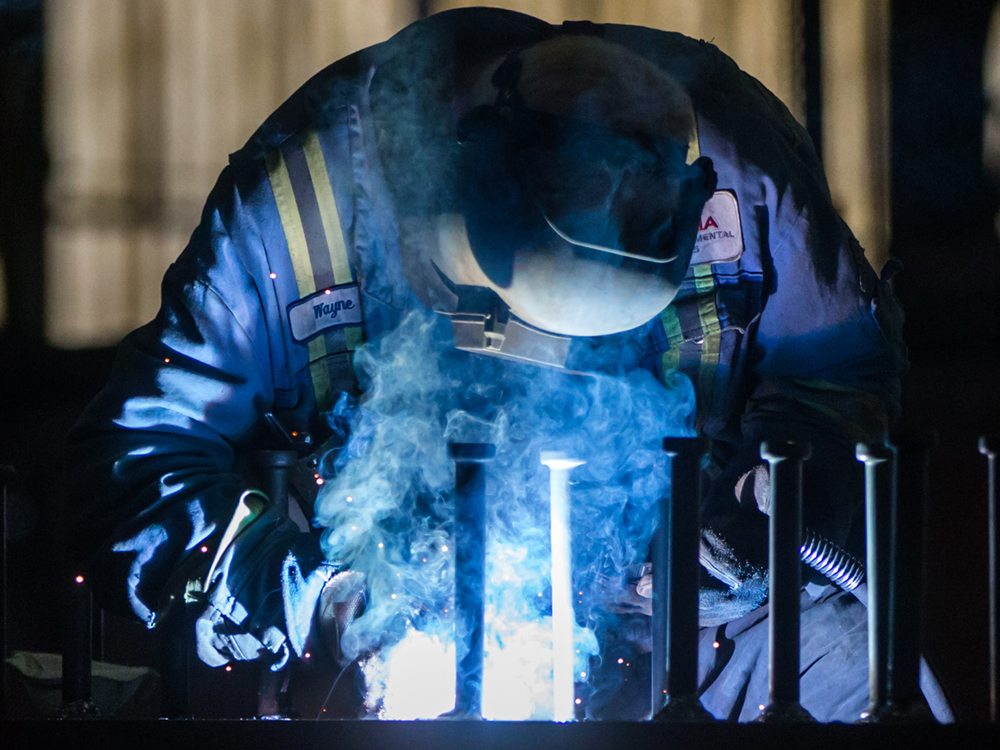Canada is waiving retaliatory tariffs on another $110 million worth of U.S. steel, deepening tensions with domestic producers who are pushing for tougher trade restrictions on foreign imports.
Last July, Finance Canada imposed tariffs on $16.6 billion worth of U.S. steel, aluminum and other goods, including a 25 per cent steel tariff. It subsequently offered reprieves for some importers with contractual obligations as well as for certain products — such as those that aren’t made in the country.
In a post on its website Tuesday, the Finance Department granted waivers to an additional 26 Canadian companies — a move that boosts the total number of firms to 81. It extends the expiry date of the waivers or “remissions” by two months to June 30 and also exempts a range of new steel products.
“The extension of the time-limited remission provides relief for downstream manufacturers while they continue to undertake efforts to secure new Canadian sources of supply,” the Finance Department said in a statement, adding that the vast majority of the requests for exemptions came from companies in the energy, advanced manufacturing, construction, automotive, aerospace and defence industries.
In all, the amendments add $110 million in potential tariff refunds for Canadian companies, pushing the total to $395 million.
But the move has disappointed steel industry leaders who are pressing Ottawa to bolster import restrictions, arguing that global overcapacity has left the world awash in steel that has been shut out of the U.S. due to its tariffs and is now seeking a home in alternate markets, including Canada.

Product at a Hamilton, Ont., steel mill.
The waivers also weaken Canada’s response to U.S. President Donald Trump’s levies on Canadian steel and aluminum at a time when Ottawa is pushing to have them dropped, said Catherine Cobden, president of the Canadian Steel Producers Association.
“The key question I have for the government is if you keep doing these remissions, how much sting do the retaliatory measures have?” said Cobden. “We’re in a situation with the U.S. where they’ve put our industry under illegal and unfair tariffs and we need them lifted. If we offer these remissions and extend the remission date, we’re telling the market there’s not a real problem here.”
The expansion of the waivers and extension of their deadline — posted as a notification on the Finance Canada website Tuesday — caught the industry by surprise, said Cobden, who is calling on the government to establish a remissions process that’s as strict or even stricter than the one used south of the border.
“The idea was by giving remissions until April 30, the government was signalling to the marketplace they needed to put alternate arrangements in place with Canadian producers,” she said. “By extending the timeline they are undermining that effort too, the opportunity for Canadian steelmakers to get back business.”
Canadian officials have said they are considering refreshing Ottawa’s list of retaliatory tariffs by adding new products. The latest round of waivers creates more room for those additions, said Cyndee Todgham Cherniak, founder of LexSage, an international trade law firm.
“But that also means we’re going to have a whole other list of products that Canadians are now going to have to pay additional duties on,” she said.
If we offer these remissions and extend the remission date, we’re telling the market there’s not a real problem here
Catherine Cobden, president of the Canadian Steel Producers Association
Meantime, steelmakers have been pushing the government to make provisional safeguards on seven steel products — a separate set of temporary trade measures imposed in October — “definitive,” a move that would see them extended from a maximum of 200 days to three years. The safeguards place limits on the amount of each product that can be brought into the country and impose prohibitive tariffs on all imports that exceed that amount.
If Finance Minister Bill Morneau makes this one, it would be in spite of a report from the Canadian International Trade Tribunal (CITT), which recently investigated the available evidence and found no grounds to extend the safeguards on five of the seven products.
Morneau’s office said it is “carefully reviewing the CITT’s findings and recommendations before deciding on next steps.”

Finance Minister Bill Morneau at the ArcelorMittal Dofasco Inc. steel galvanizing mill in Hamilton, Ont., on,Aug. 14, 2018.
Downstream industries and provinces including Alberta and British Columbia have argued that extending the safeguards would raise costs and threaten planned infrastructure projects.
Trade lawyers and legal experts have raised other concerns. Were Canada to go ahead with permanent safeguards despite the CITT’s findings, it would open itself up to challenges from trading partners at the World Trade Organization, said Todgham Cherniak, who represents parties fighting the measures. Countries could retaliate with tariffs on other Canadian industries and challenge the CITT’s credibility in making decisions on antidumping and countervailing duties cases, she said.
“It raises the possibility for every other country to say ‘if you’re saying the CITT doesn’t know what it’s doing on safeguards’ then it shouldn’t be making those decisions either,” said Todgham Cherniak.
Debra Steger, a former Canadian trade official and negotiator on the WTO’s safeguard agreement, said imposing the safeguards following the CITT’s report “would be difficult to do legally.”
“You can’t impose safeguards willy-nilly,” she said. “There have to be investigations, there have to be findings of serious economic injury. The WTO does have rules.”
The steel industry — which has received a $2-billion assistance package from Ottawa to soften the blow of the tariffs — insists the government must act.
“I would ask the government to consider the fact that many other countries are protecting their domestic market,” Cobden said. “Canada should not stand alone in having a wide open marketplace where importers have a wide open door to come into our market and take jobs away from Canadian steelworkers. I’m all for playing by the perfect rules of the WTO but the world is changing.”
• Email: npowell@nationalpost.com | Twitter: Naomi_Powell



